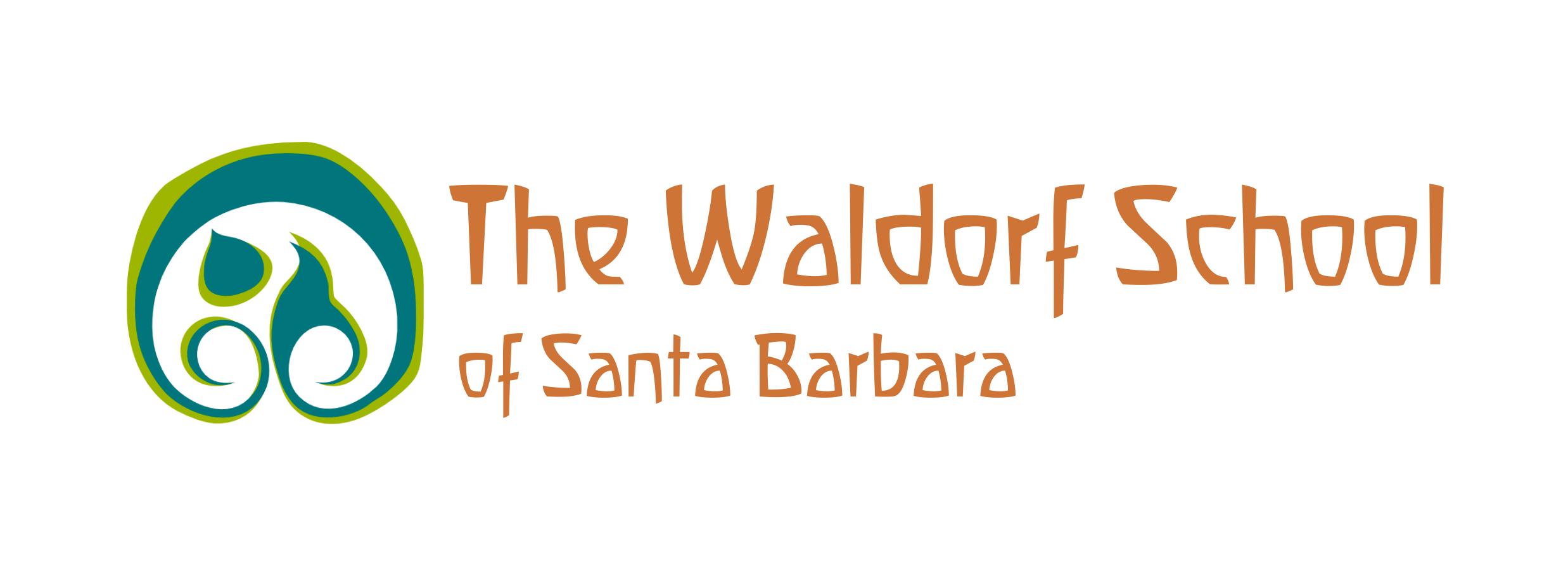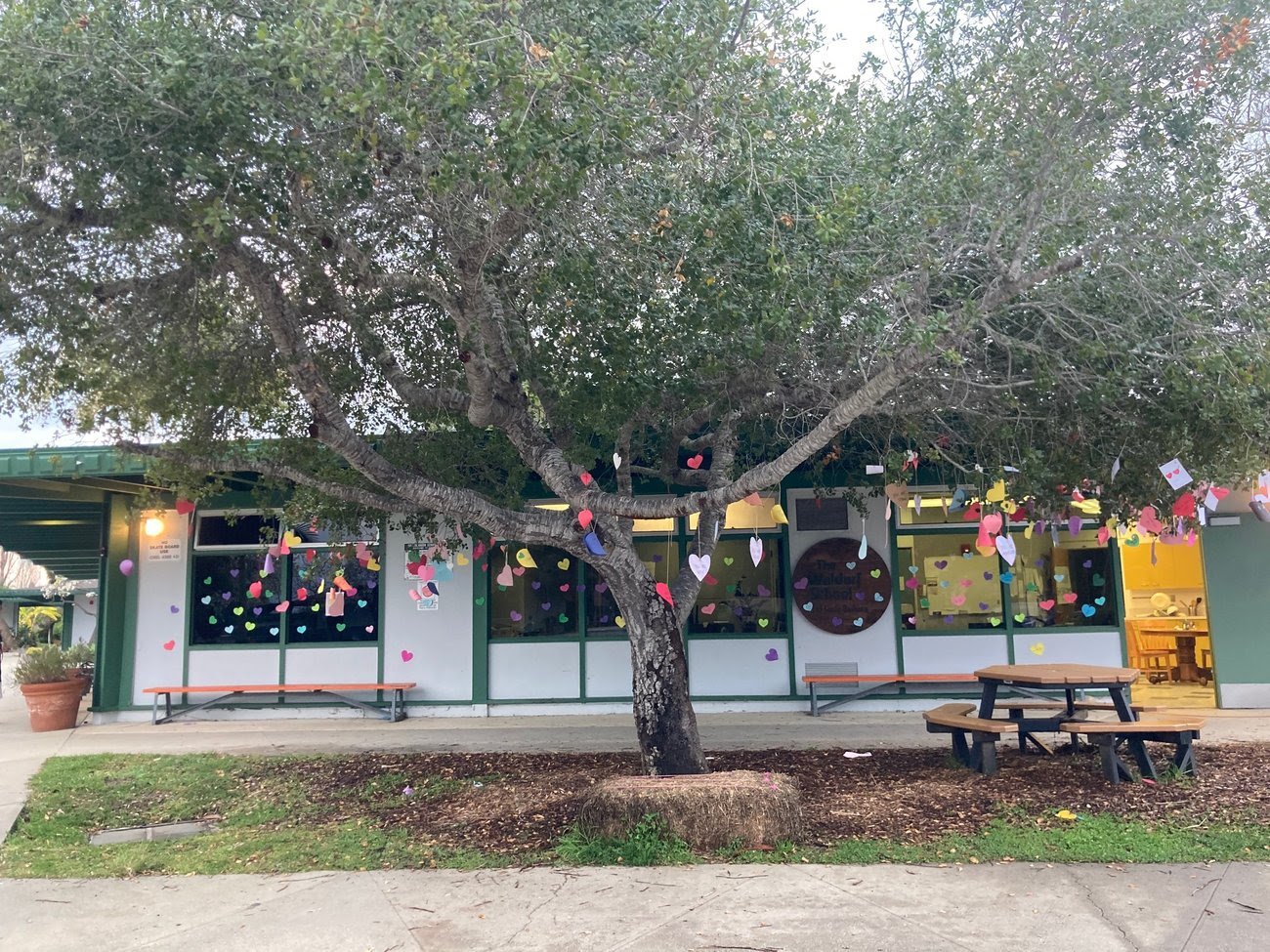Amongst the Children
Dear Friends,
Rudolf Steiner, the founder of this life-giving and healing education, said, "Teaching and education depend upon what passes from the soul of the teacher to the soul of the child. Education takes place by virtue of what you are, or rather, what you make of yourself when you are amongst the children. You must never lose sight of this."
This wise statement could work like this, too: "Parenting depends upon what passes from the soul of the parent to the soul of the child. Parenting takes place by virtue of what you are, or rather, what you make of yourself when you are amongst the children. You must never lose sight of this.
In light of Steiner's insight, we care to remind you all of "Cultivating Emotional Balance for Parents and Educators," the upcoming course offered by WSSB Kindergarten teacher, Mr. Aaron. Information is below:
Cultivating Emotional Balance for Parents and Educators
A 6-Week Course with Aaron Joseph, M.Ed.
Location: The Waldorf School of Santa Barbara
Saturday Mornings: Apr 6 - May 4 9:00AM-12:00PM
Final Saturday Retreat: May 11 9:00AM-4:00PM
Course Fee: $300 for 1 adult / $250 ea. for 2+ adults in same household
10% Discount for registration before March 15
Childcare: $20 per child per morning / $40 per child for final retreat day (limited slots)
For full course details and registration info,
email aaron@waldorfsantabarbara.org or call (805) 618-8822
Learn Eastern contemplative and Western scientific approaches to constructively work with your emotions, cultivate the mind and heart, and access genuine happiness. Theory and practice are balanced through individual, paired and group activities, discussions, and guided meditations. The relevance of CEB to our roles as caretakers of Waldorf children will be highlighted during the course.
With heart,
The Admin Team
PS The Thought of the Day is from Carol Pearson:
"At the beginning of the classic hero myth, the kingdom is a wasteland. Crops are not growing, illness is rampant, babies are not being born, and alienation and despair are pervasive. The fertility, the sense of life, has disappeared from the kingdom.…
A more youthful challenger goes on a journey, which transforms the challenger, whose treasure is the discovery of a new and life-affirming perspective. When the hero returns … fertility and abundance are restored. Rain falls, nourishing parched ground. Crops spring up, babies are born, the plague is cured, and people feel hopeful and alive once more.…
Heroes, then, are not only people who grow and change and take their journeys; they also are agents of change.… The hero’s task always has been to bring new life to an ailing culture.
In ancient times, societies were governed by kings and queens.… Today, however, we prize the achievement of democracy. Yet living in an egalitarian society carries with it responsibilities. Instead of only exceptional people going on the quest, we all need to be doing so. Heroism today requires us all to find the treasure of our true selves and to share that treasure with the community as a whole—through doing and being fully who we are. To the degree that we do so, our kingdoms are transformed."
PPS The Poem of the Day is from Robert Hayden:
Those Winter Sundays
Sundays too my father got up early
and put his clothes on in the blueblack cold,
then with cracked hands that ached
from labor in the weekday weather made
banked fires blaze. No one ever thanked him.
I’d wake and hear the cold splintering, breaking.
When the rooms were warm, he’d call,
and slowly I would rise and dress,
fearing the chronic angers of that house,
Speaking indifferently to him,
who had driven out the cold
and polished my good shoes as well.
What did I know, what did I know
of love’s austere and lonely offices?
PPPS The Article of the Day is from Peter Walker of The Guardian:
Government Confirms Plan to Ban Use of Mobile Phones in Schools in England
by Peter Walker
The government confirmed plans to ban the use of mobile phones in English schools, releasing guidance for headteachers that some unions said included practices that had already been widely adopted.
However, one headteacher welcomed the Department for Education (DfE) plan, saying it would help give schools the confidence to make a change that would benefit pupils but could meet resistance from parents.
The guidance is not statutory, and offers schools a variety of ways to implement the ban, ranging from an order to leave all phones at home, to handing them in on arrival or keeping them in inaccessible lockers, or allowing students to keep them on condition they are not used or heard.
The proliferation of smartphones in schools – Ofcom data says 97% of children have one by the age of 12 – has brought concerns about not just distraction but the potential for bullying or other social pressure.
In interviews on Monday about the plan, Gillian Keegan, the education secretary, said the DfE had consulted headteachers and believed the guidance would “empower” those yet to fully ban phones, and “would send a clear message about consistency”.
“You go to school, you go to learn, you go to create those friendships, you go to speak to people and socialise and you go to get educated – you don’t go to sit on your mobile phone or to send messages whilst you could actually talk to somebody,” she told BBC Radio 4’s Today programme.
There is also wider concern about phone use by children and the harmful content they can access. Esther Ghey, mother of the murdered teenager Brianna Ghey, has called for tech companies to do more on this, and for under-16s to be stopped from accessing social media.
Ghey has also argued for phone manufacturers to make specific products for under-16s that prevent them from accessing harmful content, after it emerged that her daughter’s killers viewed violent material before the murder.
Keegan told Today that while ministers would discuss the idea with Ghey, “it’s not something that we have actually looked at or considered and those conversations will take place”.
The 13-page DfE guidance says the policy on phones should be clearly communicated to pupils, with the reasons for it also explained. It adds that teachers should not be seen in schools using a phone except when necessary for work.
Parents also needed to be involved in the ban, it says, with a reminder that they should contact students via the school office rather than directly.





